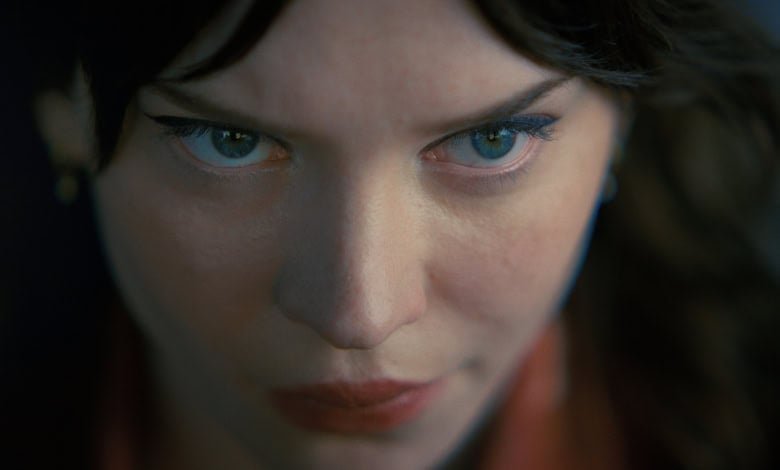Drew Hancock’s “Companion” is about a couple’s retreat in a lake house surrounded by miles of forest and isolation.
The central couple is Josh (Jack Quaid), who proudly accompanies Iris (Sophie Thatcher), who visibly adores him. Josh and Iris are met by two other couples, all seeking escape and relaxation but holding secrets that threaten to unravel the nature of their relationships.
What kind of secrets are we talking about? The kind that I want to be careful not to spoil, though my wife saw the teaser trailer months ago and guessed the big twist immediately.
My point is A. My wife is a lot sharper than I am, obviously and B. If you don’t know what “Companion” is about and want to see this uninformed, stop reading now and come back after. Minor spoilers will follow.
“Companion” is an eerie, brutal and darkly funny work. This is one of the few films that I haven’t stopped thinking about, as its central themes have followed me home.
Perhaps the early scenes feature dialog that is too on the nose, hinting all too obviously at the big twist around the corner. Yet, once everything is out in the open, the plot presents possibilities, not inevitabilities. When it seems like the film is settling into its genre, there’s another whammy of a confrontation around the corner.
To finally get to it, this plays like a contemporary twist on “The Stepford Wives” (1975) and even opens with the protagonist pushing a shopping cart (the signature image of both the original film and the wonky, guilty pleasure 2004 remake).
Jack Quaid Was ‘Desperate’ to Star in ‘Companion’
While geeking out over comic books in New York, the actor recalls “shaking” during his initial meeting with writer-director Drew Hancock.
Interview: https://t.co/nuj0tzi9OB pic.twitter.com/s1mmPlmudB
— Rolling Stone (@RollingStone) February 4, 2025
Hancock makes an impressive writer/director debut, and he’s aided enormously by a powerful, downright wonderful performance from Thatcher (who was terrific in “Heretic” just months ago). Iris is a tough character to get right, and Thatcher made me care deeply about her.
Quaid brings some effective layers to his character, never allowing us to figure out exactly how we feel about him until the very end. In the flashiest supporting role, Harvey Guillén of “What We Do in the Shadows” (where he plays Guillermo) manages to steal every single scene he’s in.
A repeated flashback, involving a dinosaur costume and a dance-off that follows, is delightful when presented the first time and hysterical when revisited with a new twist. The notion of memory as depicted here is especially effective.
As far as pop culture cinema philosophy goes, this would make a great double feature with “The Matrix” (1999).
While not on the level with “Blade Runner” (1982) or its sequel, “Companion” manages some visual and thematic references to “Hardware” (1990) and “A.I. Artificial Intelligence” (2001). I found it haunting in how it explores how couples sometimes “weaponize love” and, human or otherwise, we all fall victim to programming.
In keeping Iris not only the focus but also vulnerable and likable, it counters expectations. Who is the audience meant to root for? The answer isn’t easy. “Companion” is neither pro or anti-A.I. but an exploration of how memory, feelings and learned behavior can either make us empathetic works in progress or self-serving monsters.
Hancock presents a sadly plausible futurist premise. Classifying the story as from the “near future” is a reach, as the events of this movie only feel, at most, a decade away.
In comparison, “M3GAN” (2022) seems like escapism, while this comes across as a dire warning. The whole thing is ambitious and thought provoking, even as the deviously entertaining third act finally leans into genre expectation and character payoffs.
“Companion” has fun shuffling genre expectations in ways that reminded me of “Warm Bodies” (another love story!), though this one is a sour valentine. If you’re planning to take a special someone to see this on a date, it will either create great conversation afterwards or be enough of a turn off to become a break-up movie.
It all depends on your programming.
Three and a Half Stars (out of four)



